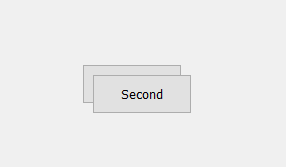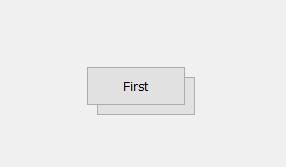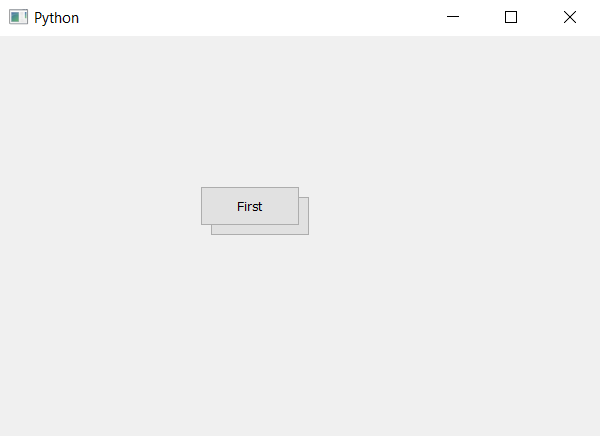En este artículo veremos cómo configurar la prioridad visible al pulsador. Cuando creamos dos botones en la misma posición, el botón que se creó al final cubrirá el botón anterior, pero con la ayuda de establecer la prioridad de los botones, podemos administrar qué botón debe estar arriba y cuál debe estar debajo.
Por ejemplo, si creamos dos botones en la misma posición, se ven así 
. Podemos ver que solo el segundo botón es visible, aunque podemos hacer que el segundo botón sea translúcido para ver el primer botón, pero aún así no se podrá hacer clic en el primer botón, pero si establecemos una prioridad más baja es decir, al llegar a una ventana baja al segundo botón, se verán así.

Sintaxis: botón.inferior()
Argumento: No requiere argumento.
Acción realizada : Pone el botón a bajar ventana.
Código:
# importing libraries
from PyQt5.QtWidgets import *
from PyQt5.QtGui import *
from PyQt5.QtCore import *
import sys
class Window(QMainWindow):
def __init__(self):
super().__init__()
# setting title
self.setWindowTitle("Python ")
# setting geometry
self.setGeometry(100, 100, 600, 400)
# calling method
self.UiComponents()
# showing all the widgets
self.show()
# method for widgets
def UiComponents(self):
# creating a push button
button1 = QPushButton("First", self)
# setting geometry of button
button1.setGeometry(200, 150, 100, 40)
# adding action to a button
button1.clicked.connect(self.clickme)
# creating a push button
button2 = QPushButton("Second", self)
# setting geometry of button
button2.setGeometry(210, 160, 100, 40)
# adding action to a button
button2.clicked.connect(self.clickme)
# make it in lower the window
button2.lower()
# action method
def clickme(self):
# printing pressed
print("pressed")
# create pyqt5 app
App = QApplication(sys.argv)
# create the instance of our Window
window = Window()
# start the app
sys.exit(App.exec())
Producción :
Publicación traducida automáticamente
Artículo escrito por rakshitarora y traducido por Barcelona Geeks. The original can be accessed here. Licence: CCBY-SA